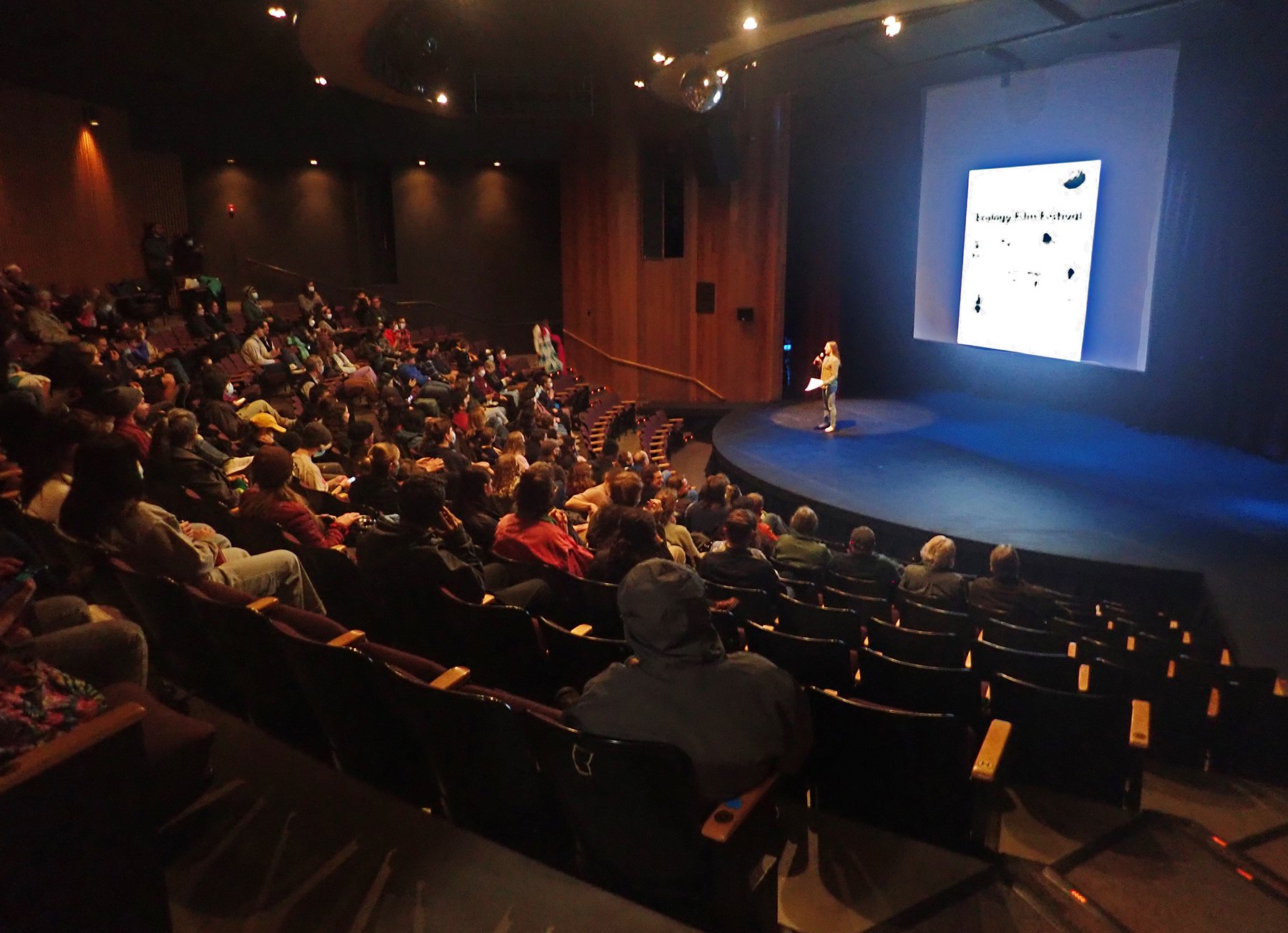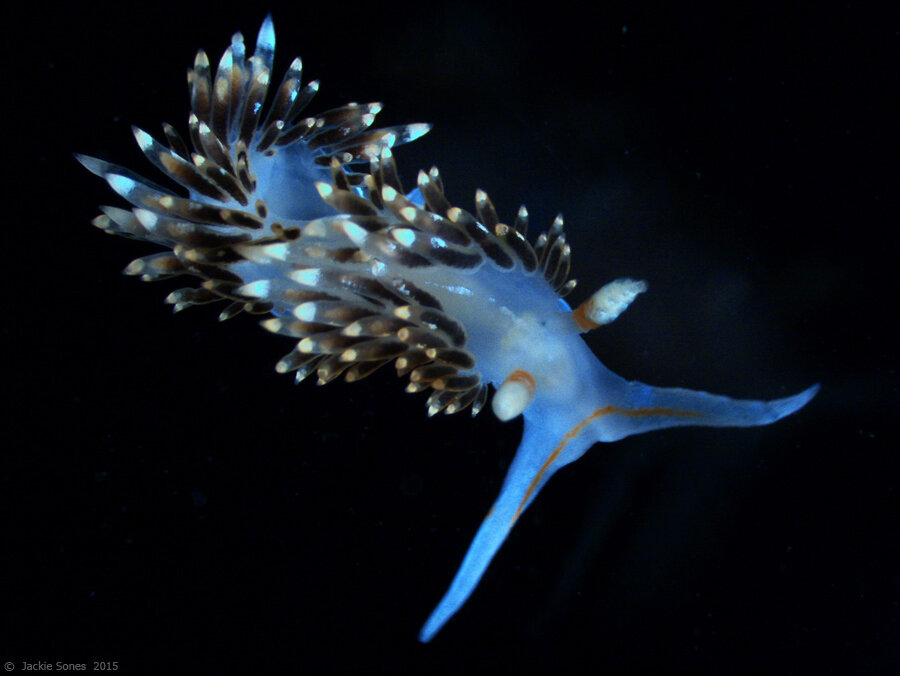Sanford Lab in the News
BAY NATURE - JANUARY 22, 2025
A Mussel Bed is Full of Life, 80 Years Later. The invertebrates found in a mussel bed on Dillon Beach in western Marin County are just as abundant as they were in 1941. But the types of organisms have changed. Read more…
CANADIAN BROADCASTING CORPORATION - PUBLIC RADIO - January 20, 2025
Emily Longman is interviewed about her mussel bed study for the CBC Radio program, “As It Happens.”
UC DAVIS - January 16, 2025
Mussel Bed Surveyed Before World War II Still Thriving. Old manuscript leads researchers to biodiverse mussel bed and 101-year-old scientist. Read more…
UC Davis, CMSI BLOG - October 2, 2024
Exploring New Depths. UC Davis EVE Scholars at the Bodega Marine Lab. Read more…
BAY NATURE - September 24, 2024
Life in Hot Water. As another strong El Niño exits the Pacific, researchers look to marine life to tell us what’s happening. Read more…
the press democrat - September 3, 2024 (Front Page)
Toxic defenses, visible brains: College student discovers 11 new ribbon worm species in Bodega Bay. A student’s search for ribbon worms in and around Bodega Bay turned up 34 different species, including 11 that were found to be new to science after DNA sequencing and morphological assessment. Read more…
SF GATE - AUGUST 28, 2024
New beach-dwelling species discovered in Bay Area. Maddy Frey set out before sunrise to catch the low tide, scanning the darkened shoreline of Horseshoe Cove in Bodega Bay with a trowel in one hand and a bucket in the other. Read more…
BAY NATURE - AUGUST 8, 2024
College Student Discovers 11 New Species of Predatory Worms in Bodega Bay. How little we know about the biodiversity of marine invertebrates. Read more…
Press democrat - November 3, 2023
Tiny sea anemones found far from home. (Tomales Bay) Tentacled organism native to Southern Hemisphere discovered in mudflats, prompting research, questions about its impact. Read more…
The student Researcher, UC Davis - October 24, 2023
How Students Dive into Marine Science at UC Davis. News article featuring research experiences of students in the Sanford Lab, including BIS 124 student Caroline Donohew and EVE Scholar Zoe Brumbaugh. Read more…
And watch videos regarding Caroline’s project here, and Zoe’s project here!
KCBS RADIO, SAN FranciscO - AUGUST 18, 2023
Keira Monuki is interviewed by KCBS Radio regarding introduced anemones in Tomales Bay.
marin independent journal -
august 18, 2023
Non-native invertebrates spreading in Tomales Bay. Thousands of small, self-cloning sea anemones native to the Southern Hemisphere are rapidly spreading in Tomales Bay, an event researchers say could be the first recorded sighting of the species above the equator. Read more…
UC DAVIS BLOg -
JANUARY 18, 2023
Science Storytelling Through a Camera Lens. Ecology Film Festival Spotlights UC Davis Graduate Researchers. Read more…
UC DAVIS BLOg -
June 28, 2022
Ocean Acidification: Interdisciplinarity in Marine Science. Insights in the Bodega Ocean Acidification Research group. Read more…
PBS NEWS, WHYY, Philadelphia -
May 5, 2022
Hey nature nerds, you could help all of us understand climate change. Scientists are already starting to use data from iNaturalist in studies looking at the impacts of global warming and other types of environmental change. Read more…
The conversation - October 4, 2021
Five years after largest marine heatwave on record hit northern California coast, many warm–water species have stuck around. . Read more…
SCience - May 28, 2021
Our recent paper (Ricart et al. 2021) regarding the influence of seagrasses on ocean acidification was highlighted in the journal Science. Read more…
san francisco Chronicle - March 31, 2021
Underwater meadows of California seagrass found to reverse symptom of climate change. Read more…
UC DAVIS - March 31, 2021
Seagrasses Turn Back the Clock on Ocean Acidification. Expansive study shows seagrass meadows can buffer ocean acidification. Read more…
UC DAVIS - October 5, 2020
New study in Proceedings of the National Academy of Sciences identifies traits of climate-resilient Red Abalone, with implications for farmed abalone. Read more…
Rolling Stone - April 2, 2020
Rising Tides, Troubled Waters. The ocean is undergoing unprecedented changes. Article features Bodega Marine Laboratory research on marine heatwaves, including our work on geographic range expansions. Read more…
The PRESS DEMOCRAT - JULY 6, 2019
North Coast mussel die-off an alarming sign of warming world’s threat to marine life Read more…
The guardian - June 29, 2019
Temperatures lead to what appears to be largest local die-off in 15 years, raising fears for broader ecosystem. Read more…
Bay Nature - June 26, 2019
California’s early June heat wave cooked coastal mussels in place. Read more…
SAN FRANCISCO CHRONICLE - June 17, 2019
How is climate change affecting oceans? Check the tide pools. Read more…
WASHINGTON POST - April 17, 2019
Lost sea creatures wash up on California shores as ocean climate shifts. Read more…
THE PRESS DEMOCRAT - MARCH 12, 2019
Ocean heat wave brought 67 rare, warm-water species to North Coast. Read more…
KPCC RADIO, LOS ANGELES - MARCH 12, 2019
Eric Sanford is interviewed by A Martínez of Southern California Public Radio regarding marine heatwaves.
LOS ANGELES TIMES - MARCH 12, 2019
Tropical jellyfish, eels and sea butterflies are pouring into California’s coast, thanks to a ‘warm-water blob’. Read more…
UC DAVIS - MARCH 12, 2019
Unprecedented number of warm-water species moved northward during marine heatwave. Read more…
SAN FRANCISCO CHRONICLE - MARCH 12, 2019
Species by the dozen moved north during marine heatwaves. Read more…
UC Davis - January 7, 2019
Blending In: Ecology graduate student Grace Ha investigates camouflage in seagrass meadows. Read more…
UC Davis - September 18, 2018
Discovering Curiosity: Eric Sanford discusses how marine science and sustainable fisheries go hand in hand. Read more…
UC Davis - April 9, 2018
Sea Change: UC Davis Explores the Future of Ocean Acidification. Read more…
NBC BAY AREA NEWS - April 26, 2017
Bay Area scientists saving abalone from the future. Watch video here…
THE PRESS DEMOCRAT - April 26, 2017
The response by certain aquatic animals to warming ocean temperatures may make them more vulnerable to growing acidification, a secondary effect of climate change already measurable off the Sonoma Coast. Read more…
NATURE - April 20, 2017
Marine organism risks losing its skeleton thanks to climate change. Read more…
UC DAVIS - April 18, 2017
Canary in the kelp forest: Sea creature dissolves in today’s warming, acidifying waters. Read more…




































